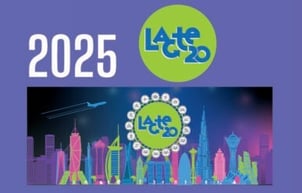For many businesses, expanding into new markets is the key to growth. However, as you move into other regions, partner with suppliers, and draw from the global talent pool, language barriers will undoubtedly emerge. Language issues remain a persistent problem for many organisations. As a Forbes Insights and Rosetta Stone Business report reveals, more than 100 executives at large US businesses find that language barriers have a “significant impact” on business operations.
5 min read
6 reasons (with data) why your business needs live translation
By Patricia Magaz on February 9, 2024
Topics: Remote Simultaneous Interpretation Businesses Live Captions AI speech translation
5 min read
How pharma and life science companies can run accurate multilingual events
By Patricia Magaz on July 5, 2023
Medical innovation thrives on multinational collaboration and knowledge sharing. Within the medical and pharma industry, multilingual events play a key role in facilitating conversations, enhancing scientific knowledge, and fostering partnerships between industry players.
As global events, language accuracy is vital for accommodating a diverse range of stakeholders including researchers, scientists, healthcare professionals, investors, and regulatory authorities. At the same time, inaccurate translation of technical and scientific terms creates an event experience that is as frustrating for the speaker as it is for the audience. Even worse, translation issues can lead to miscommunication, potentially leaving event attendees misinformed on the latest developments. Within such a stringently regulated industry, this can have severe legal implications. Especially as multilingual events are essential for ensuring compliance with local regulations, as well as facilitating effective communication between regulators and industry professionals across different countries.
In this article, we briefly unpack the challenges and benefits of hosting multilingual events before exploring steps that pharma and life science companies can take to source the right language interpretation solution. One that leads to successful, stress-free, and accurate multilingual events.
Topics: Businesses Event Solutions
4 min read
How to successfully host multilingual business meetings
By Patricia Magaz on March 15, 2022
When holding meetings with partners, customers, suppliers, or peers across multiple countries, language can often pose a big barrier to successful communication.
Topics: Remote Simultaneous Interpretation Businesses How-To Guides
6 min read
Remote interpreting – What you need to know
By Patricia Magaz on March 3, 2022
The International Organization for Standarization (ISO) defines interpreting as "rendering of spoken or signed information from a source language to a target language in oral or signed form, conveying both the register and meaning of the source language content". Add "remote" to this definition and it then seems obvious that we are referring to the act of interpreting in the distance but, is there only one way of doing it? and, where is it used?
Topics: Remote Simultaneous Interpretation Businesses Event Solutions
3 min read
Localising Event Experiences Is key to Scaling Into New Regions
By Patricia Magaz on January 12, 2022
The shift toward digital experiences and virtual events has created an opportunity for businesses to expand into new markets and reach audiences at scale. While expansion is key to business growth, it’s a challenging process that requires localising your content to fit with different multinational audiences.
Topics: Remote Simultaneous Interpretation Multilingual Web Conferencing Webinars Businesses
4 min read
How to overcome international business communication barriers
By Patricia Magaz on December 1, 2021
If you work in a multinational, you’ll get a taste for the experiences only larger, multilingual companies can offer — like the opportunity to learn about new cultures and ways of doing business. However, unlocking these benefits requires proactively solving communication challenges that typically occur in multicultural, and multilingual environments.
Let’s examine 4 of the most common friction points and how interpreting services can help overcome them.




-min.png)
-min.png)
-min.png)

 More download links
More download links



